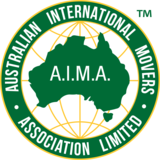VIA DEPARTMENT OF AGRICULTURE, WATER AND THE ENVIRONMENT
Within the next two months the Department of Agriculture, Water and the Environment (the department) will implement urgent actions to address the risk of khapra beetle (Trogoderma granarium) on high-risk plant products that are hosts of this pest.
Khapra beetle is not present in Australia, but it is a highly invasive pest that poses a major threat to Australia’s grains industry. The global spread of khapra beetle is increasing and it is being detected on a wide range of plant products and as a hitchhiker pest on containers. If khapra beetle enters Australia it would have significant economic consequences. An outbreak could cost Australia $15.5 billion over 20 years through revenue losses arising from damaged grain in storage and exports.
What is changing?
To safeguard Australia against the entry, establishment and spread of this pest, urgent actions will be implemented in several phases. The first action will be banning high-risk plant products (Attachment A) from entering Australia from all countries within:
- unaccompanied personal effects (UPE) and
- low value air and sea freight lodged through self-assessed clearance (SAC), excluding goods imported as commercial trade samples and for research purposes.
We expect the ban will come into effect in August 2020, and stakeholders will be formally notified of the commencement date through a BICON alert and Industry Advice Notice.
From this date, high-risk plant products from all countries must be exported or destroyed where goods have arrived within one of the above pathways.
Other actions will also be applied to goods imported by travellers, through the mail, and commercial pathways and further details can be found via BICON Alert Notification of planned urgent actions for khapra beetle.
How will the changes affect High Volume Specialist Operators (HVSOs)?
When assessing UPE consignment documentation (B534 form and packing list), HVSOs must pay attention for high-risk plant products (Attachment A) that may be declared in Section 7 and 8 of the form and show these to the biosecurity officer when they present the goods for inspection.
Biosecurity officers will inspect the goods and all plant products posing a high-risk of carrying khapra beetle will be directed for export or destruction.
General requirements for all biosecurity industry participants
When handling UPEs or low value air and sea freight lodged through SAC, all biosecurity industry participants must pay attention for high-risk plant products (Attachment A) and notify a biosecurity officer if such products are found.
The department also encourages all biosecurity industry participants to become familiar with recognising the signs of khapra beetle. Khapra beetle can be associated with the goods or with the container used in the shipping of those goods.
Information about khapra beetle, including what it looks like and what you must do if you detect it, can be found in our khapra beetle pest bulletin (Below).
If you have any questions, please don’t hesitate to contact the Department of Agriculture Water and the Environment on 1800 900 090 or via email [email protected]
